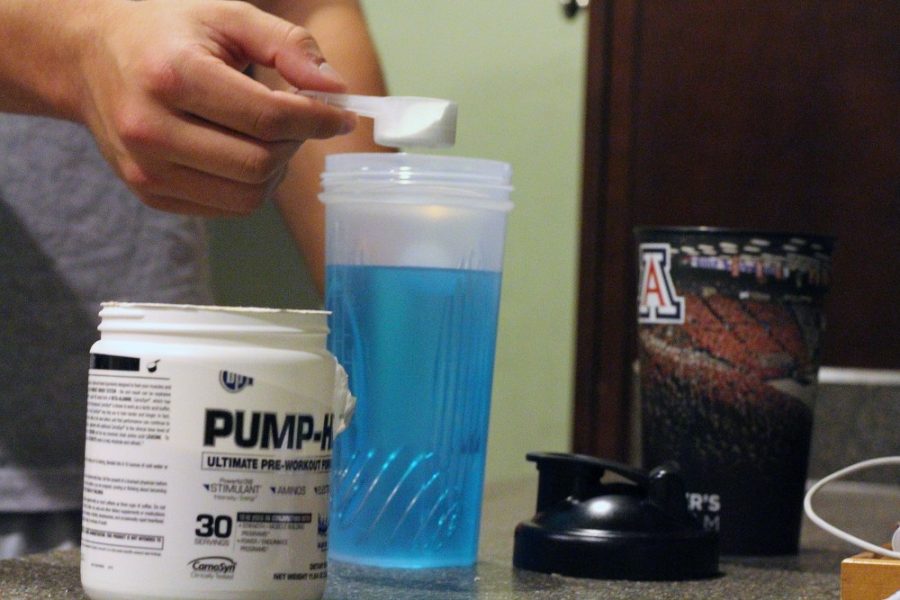A popular pre-workout supplement called Craze is being pulled from the shelves by retailers this month because of reports that it contains an ingredient similar to methamphetamine.
This is not the first time a pre-workout supplement has made headlines for containing a dangerous ingredient. In 2012, the Food and Drug Administration issued warnings to 11 companies requesting that they eliminated products containing another harmful stimulant known as dimethylamylamine, or DMAA, according to the FDA report.
“There is an incentive on the company’s part to dope these products because then people feel better and look better, so they keep buying it,” said Roger Miesfeld, co-chair and department head of chemistry and biochemistry at the UA. “It’s like adding extra nicotine to a cigarette.”
Stimulants like DMAA and amphetamine derivatives work by activating receptors in the brain, which then causes the athlete to feel more energetic and to lift more or run farther, Miesfeld said.
These products can affect other organs too. The oxidation reactions that take place in the liver in response to unnatural chemicals can generate toxic byproducts, Miesfeld said.
These substances can sometimes be hidden under a healthier-sounding alias, he added. Some of the companies that were selling products containing DMAA listed it as “pelargonium graveolens extract” or “geranium extract,” according to the FDA report.
“People need to remember that herbs have chemicals,” Miesfeld said. “Half of our chemicals come from plants.”
This can pose a problem to college athletes in particular because the National Collegiate Athletic Association places full responsibility on the student to know what they are putting into their body, said Stephanie Jones, registered dietitian of EastSide Nutrition.
“Even having too much caffeine can cause an athlete to be disqualified,” Jones said.
Jones had a client last month that came in for a consult who was using Craze as a pre-workout supplement. The client was unaware of how dangerous the product was, Jones said.
“Supplements are not directly regulated by the FDA, so you don’t really know what you are taking,” she said.
Pre-workout supplements also have physiological and emotional addictive properties, she said.
Caffeine, a common ingredient in pre-workout supplements, can be especially addictive, Jones said.
Ingesting too much of a pre-workout supplement can put extra stress on the kidneys and liver, she added, and there is also the risk of dehydration.
“When taking a pre-workout, it is very tempting to think more is better and add that extra scoop,” said Christina Metrejean, a public health senior.
With the right dosage, pre-workouts do have their place in nutrition, Jones said. Assuming that the product does not contain a harmful stimulant, it can improve an athlete’s performance, she said.
Jones recommends two products manufactured by Abbott Laboratories to her clients: Phos Force, which is caffeinated, and Phos HP, which is not. Both products contain carbohydrates, amino acids and creatine.
Metrejean uses a pre-workout called Cellucor C4 Extreme, which also contains creatine. She said that she uses the product because it gives her an “extra little kick” to get through her workouts, but she never exceeds the recommended dosage.
“With college students, there is so much competition,” Metrejean said. “Unfortunately, I think a lot of people misuse pre-workouts and ignore their nutrition for the quick and awesome rush.”









